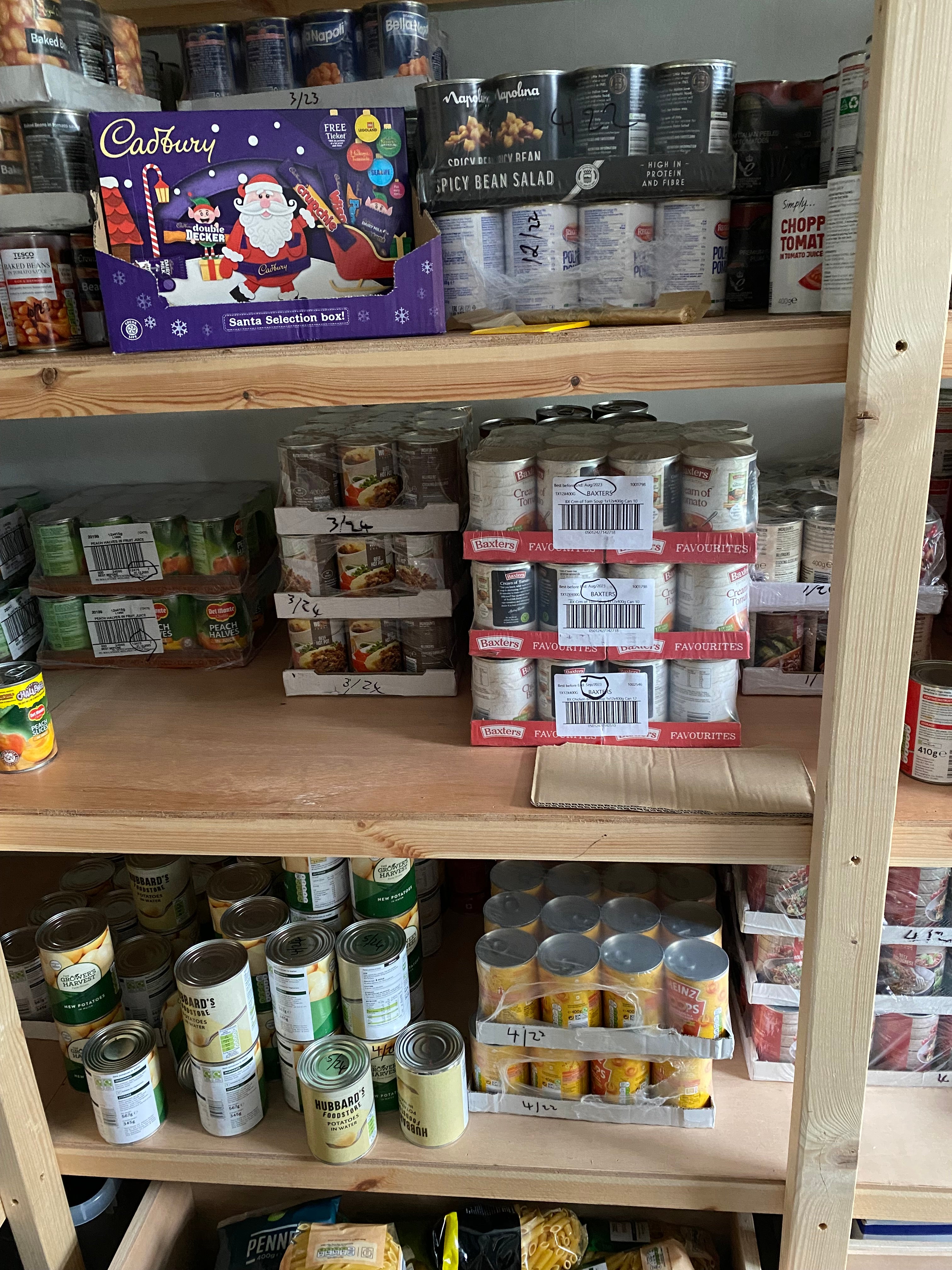Food banks see ‘worrying’ rise in need after removal of Universal Credit uplift
Some independent food aid providers are seeing greater need than they were at the start of the coronavirus pandemic.

Your support helps us to tell the story
From reproductive rights to climate change to Big Tech, The Independent is on the ground when the story is developing. Whether it's investigating the financials of Elon Musk's pro-Trump PAC or producing our latest documentary, 'The A Word', which shines a light on the American women fighting for reproductive rights, we know how important it is to parse out the facts from the messaging.
At such a critical moment in US history, we need reporters on the ground. Your donation allows us to keep sending journalists to speak to both sides of the story.
The Independent is trusted by Americans across the entire political spectrum. And unlike many other quality news outlets, we choose not to lock Americans out of our reporting and analysis with paywalls. We believe quality journalism should be available to everyone, paid for by those who can afford it.
Your support makes all the difference.Food banks are experiencing a “sudden and worrying” increase in demand from people hit by the removal of the Universal Credit (UC) uplift and soaring food and energy prices before Christmas.
More than nine in 10 independent food bank providers have reported a rise in need over the past six weeks, according to figures from the Independent Food Aid Network (Ifan).
A separate poll by the community giving platform Neighbourly, which Aldi partners with to distribute surplus food, found that 70% of food banks, charities and community causes were worried about having enough food to support people this Christmas.
The survey, of more than 600 groups, found that 79% had experienced a fall in donations and, on average, they expect demand to grow by 40% over the next three months.
Ifan said the “tsunami of need” providers are experiencing “is a public health risk for all concerned”.
Members said reasons behind the increased demand were the much-criticised phasing out of the £20-a-week UC uplift, rising food and energy prices and the end of the furlough scheme.
Around a third of the providers also said there were fewer surplus food items available or that donations had fallen, according to the figures shared with the PA news agency.
The 68 providers collectively run more than 120 food banks across England, Scotland and Wales and have served tens of thousands of people over the past six weeks.
One manager said the rise in demand the food bank was experiencing was “both sudden and worrying”, while another said they were seeing greater need than at the start of the first lockdown in 2020.
Catherine Evans, who manages the Pontarddulais Partnership near Swansea, said demand had more than doubled since the £20-a-week UC uplift was removed over the course of October.
It handed out 472 food parcels in September, 746 in October and 1,103 in November.
Need is continuing to rise through December, and on Wednesday the food bank distributed more than 100 parcels.
She told the PA news agency: “Through the winter months and especially when we’ve got Covid numbers increasing again, I can just see a further increase.
“I think people just can’t manage.
“We can give them all the advice in the world – there are some people in debt and we’ve got access to some of the debt counselling agencies and debt prevention agencies – but if people haven’t got enough money coming in to pay the bills, they can’t pay their bills.”
The 59-year-old said many people coming forward were part-time workers or people, particularly young men, who had lost their jobs.
On fewer donations coming in, she suspects this is down to rising prices meaning people “haven’t got as much spare” to give to a food bank.
She added: “I really do believe this in my own heart, that in the 21st century we shouldn’t have any people relying on a food bank to feed their family.”
Kate Auker, chief executive of the Welcome Centre food bank in Huddersfield, added: “We are indeed at full stretch here and have never in over 20 years seen numbers like it.”
Another food bank manager said that the “large spike” in referrals of UC claimants showed the current benefits system “is inadequate for many vulnerable people”.
The Government removed the UC uplift – a temporary measure brought in to help claimants weather the storm of the pandemic – in the autumn.
This was despite broad opposition from cross-party MPs, former Conservative Work and Pensions Secretaries, charities and think tanks.
It has introduced a £500 million fund for households struggling to afford essentials this winter, but groups say it is not nearly enough to make up for the loss of the uplift.
Ifan coordinator Sabine Goodwin said: “As so many of us predicted, food bank use is increasing at an alarming rate, yet a food parcel will do nothing more than temporarily alleviate hunger while risking Omicron for both food bank teams and those they support.
“Any Household Support Fund elements that happen to be transferred directly to people unable to afford are most welcome but they represent a fraction of the £6 billion just removed from Universal Credit.
“We’re calling for a cash-first approach to growing food poverty, not only because it will address its root causes by prioritising income-based solutions, but also because the current public health emergency requires it.”